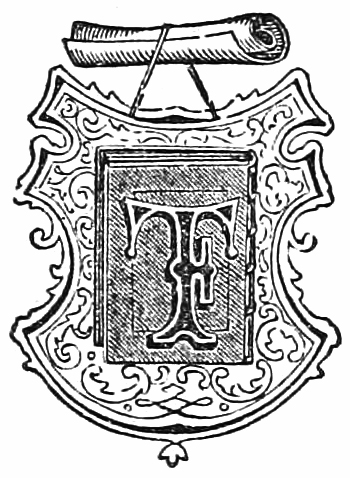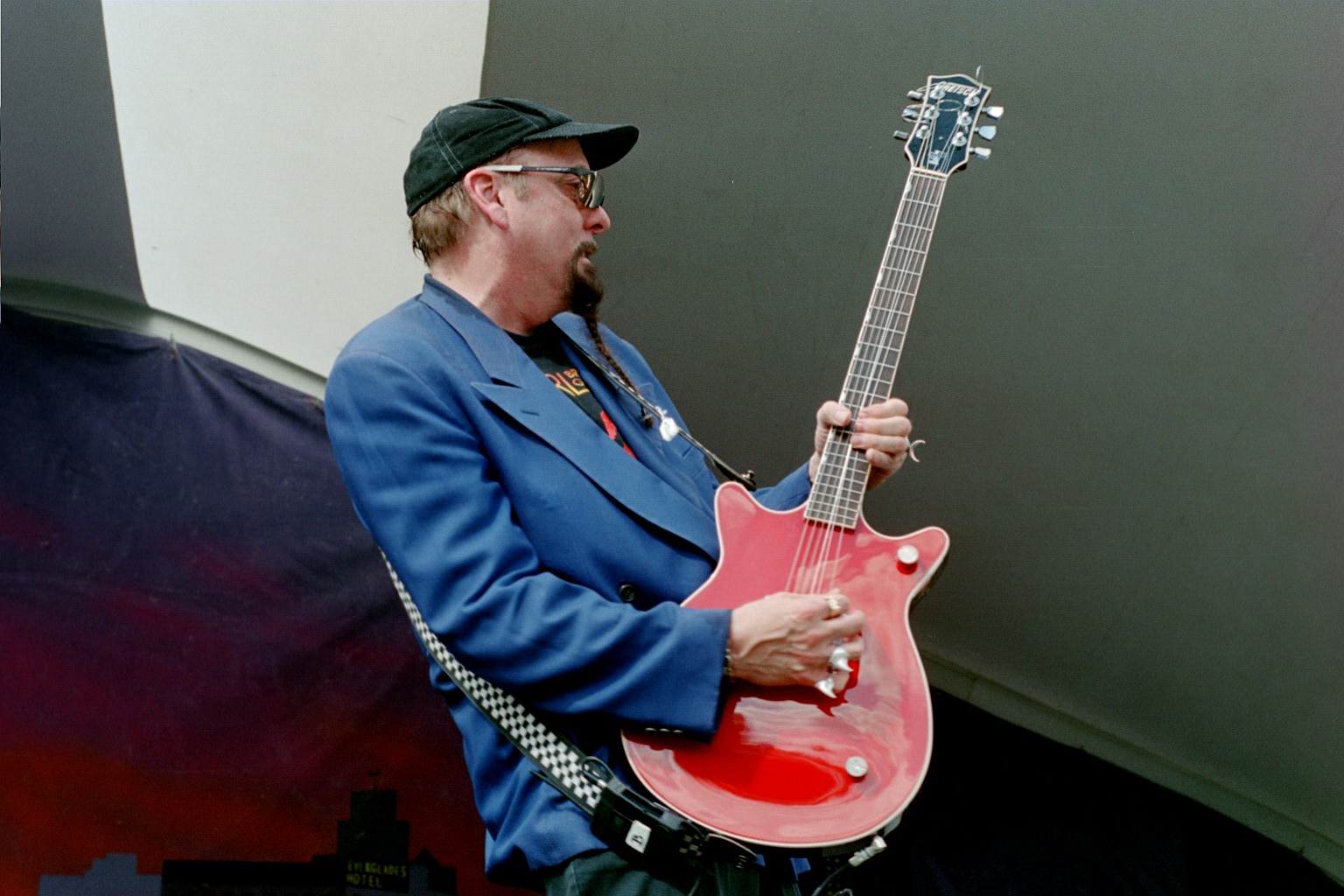|
In Color (album)
''In Color'' is the second studio album by Cheap Trick, released in 1977 and produced by Tom Werman. Considered a classic of the power pop genre, the album was ranked No. 4 on ''Shake Some Action: The Ultimate Power Pop Guide''. In 2003, the album was also ranked number 443 on ''Rolling Stone'' magazine's list of the 500 greatest albums of all time. The album was Cheap Trick's first to reach the ''Billboard'' 200, peaking at number 73, but was far more successful in Japan, where the singles "I Want You to Want Me" and " Clock Strikes Ten" were very popular. The former became a top 10 US hit as a live version from the ''Cheap Trick at Budokan'' album, recording on the band's first Japanese tour, and remains Cheap Trick's signature song. Overview ''In Color'', as opposed to the band's self-titled debut, features a more polished production in the hopes of making a commercial impact. The album made the band superstars in Japan, where "I Want You to Want Me" and "Clock Strikes Te ... [...More Info...] [...Related Items...] OR: [Wikipedia] [Google] [Baidu] |
Cheap Trick
Cheap Trick is an American rock band formed in Rockford, Illinois in 1970 by guitarist Rick Nielsen, bassist Tom Petersson, lead vocalist Robin Zander and drummer Bun E. Carlos. Their work bridged elements of '60s pop rock, guitar pop, '70s hard rock, and the emerging punk rock sound, and would help set the template for subsequent power pop artists. Cheap Trick released their Cheap Trick (1977 album), self-titled debut album in 1977 and, later that year, found success in Japan with the release of their second album, ''In Color (album), In Color''. 1978's ''Heaven Tonight'' included the power pop classic "Surrender (Cheap Trick song), Surrender". The band achieved mainstream popularity in the United States in 1979 with the RIAA certification, triple-platinum live album ''Cheap Trick at Budokan, At Budokan'' and a Top 10 single, a live recording of "I Want You to Want Me". They followed with ''Dream Police'' (1979), their most commercially successful studio album, reaching No. 6 o ... [...More Info...] [...Related Items...] OR: [Wikipedia] [Google] [Baidu] |
Cheap Trick At Budokan
''Cheap Trick at Budokan'' (or simply ''At Budokan'') is the first live album by American rock band Cheap Trick, and their best-selling recording. Recorded at the Nippon Budokan in Tokyo, the album was first released in Japan on October 8, 1978, and later released in the United States in February 1979, through Epic Records. After several years of constant touring but only middling exposure for the band, ''At Budokan'' steadily grew off radio play and word-of-mouth to become a high-selling success, kickstarting the band's popularity and becoming acclaimed as one of the greatest live rock albums of all time and a classic of the power pop genre. It was ranked number 426 in the 2003 edition of ''Rolling Stone'' magazine's list of "the 500 Greatest Albums of All Time". In 2019, the album was selected by the Library of Congress for preservation in the United States National Recording Registry for being "culturally, historically, or aesthetically significant". An album featuring lefto ... [...More Info...] [...Related Items...] OR: [Wikipedia] [Google] [Baidu] |
The Rolling Stone Album Guide
''The Rolling Stone Album Guide'', previously known as ''The Rolling Stone Record Guide'', is a book that contains professional music reviews written and edited by staff members from ''Rolling Stone'' magazine. Its first edition was published in 1979 and its last in 2004. First edition (1979) ''The Rolling Stone Record Guide'' was the first edition of what would later become ''The Rolling Stone Album Guide''. It was edited by Dave Marsh (who wrote a large majority of the reviews) and John Swenson, and included contributions from 34 other music critics. It is divided into sections by musical genre and then lists artists alphabetically within their respective genres. Albums are also listed alphabetically by artist although some of the artists have their careers divided into chronological periods. Dave Marsh, in his Introduction, cites as precedents Leonard Maltin's book '' TV movies'' and Robert Christgau's review column in the '' Village Voice''. He gives '' Phonolog'' and ''Schwan ... [...More Info...] [...Related Items...] OR: [Wikipedia] [Google] [Baidu] |
Ticknor & Fields
Ticknor and Fields was an American publishing company based in Boston, Massachusetts. Founded as a bookstore in 1832, the business published many 19th-century American authors, including Ralph Waldo Emerson, Nathaniel Hawthorne, Henry James, Henry Wadsworth Longfellow, Harriet Beecher Stowe, Henry David Thoreau, and Mark Twain. It also became an early publisher of '' The Atlantic Monthly'' and '' North American Review''. The firm was named after founder William Davis Ticknor and apprentice James T. Fields, although the names of additional business partners would come and go, notably that of James R. Osgood in the firm's later years. Financial problems led Osgood to merge the company with the publishing firm of Henry Oscar Houghton in 1878, forming a precursor to the modern publisher Houghton Mifflin Harcourt. Houghton Mifflin revived the Ticknor and Fields name as an imprint from 1979 to 1989. Company history Early years In 1832 William Davis Ticknor and John Allen ... [...More Info...] [...Related Items...] OR: [Wikipedia] [Google] [Baidu] |
Rock Albums Of The Seventies
''Christgau's Record Guide: Rock Albums of the Seventies'' is a music reference book by American music journalist and essayist Robert Christgau. It was first published in October 1981 by Ticknor & Fields. The book compiles approximately 3,000 of Christgau's capsule album reviews, most of which were originally written for his "Consumer Guide" column in ''The Village Voice'' throughout the 1970s. The entries feature annotated details about each record's release and cover a variety of genres related to rock music. Christgau's reviews are informed by an interest in the aesthetic and political dimensions of popular music, a belief that it could be consumed intelligently, and a desire to communicate his ideas to readers in an entertaining, provocative, and compact way. Many of the older reviews were rewritten for the guide to reflect his changed perspective and matured stylistic approach. He undertook an intense preparation process for the book during 1979 and 1980, which temporarily ... [...More Info...] [...Related Items...] OR: [Wikipedia] [Google] [Baidu] |
Rovi Corporation
TiVo Corporation, formerly known as the Rovi Corporation and Macrovision Solutions Corporation, was an American technology company headquartered in San Jose, California. Now operating as Xperi, the company is primarily involved in licensing its intellectual property within the consumer electronics industry, including digital rights management, electronic program guide software, and metadata. The company holds over 6,000 pending and registered patents. The company also provides analytics and recommendation platforms for the video industry. In 2016, Rovi acquired digital video recorder maker TiVo Inc., and renamed itself TiVo Corporation. On May 30, 2019, TiVo announced the appointment of Dave Shull as the company's new president and CEO. On December 19, 2019, TiVo merged with Xperi; the combined firm operates as Xperi. History Macrovision Corporation was established in 1983 by Victor Farrow and John O. Ryan. The 1984 film '' The Cotton Club'' was the first video to be e ... [...More Info...] [...Related Items...] OR: [Wikipedia] [Google] [Baidu] |
AllMusic
AllMusic (previously known as All-Music Guide and AMG) is an American online database, online music database. It catalogs more than three million album entries and 30 million tracks, as well as information on Musical artist, musicians and Musical ensemble, bands. Initiated in 1991, the database was first made available on the Internet in 1994. AllMusic is owned by RhythmOne. History AllMusic was launched as ''All-Music Guide'' by Michael Erlewine, a "compulsive archivist, noted astrologer, Buddhist scholar, and musician". He became interested in using computers for his astrological work in the mid-1970s and founded a software company, Matrix, in 1977. In the early 1990s, as compact discs (CDs) replaced LP record, LPs and cassette (format), cassettes as the dominant format for recorded music, Erlewine purchased what he thought was a CD of early recordings by Little Richard. After buying it, he discovered it was a "flaccid latter-day rehash". Frustrated with the labeling, he res ... [...More Info...] [...Related Items...] OR: [Wikipedia] [Google] [Baidu] |
RTÉ 2XM
RTÉ 2XM (stylised as "RTE 2> |
Rick Nielsen
Richard Alan Nielsen (born December 22, 1948) is an American musician who is the lead guitarist, primary songwriter, and leader of the rock band Cheap Trick. He is well-known for his numerous custom-made guitars from Hamer Guitars, including his famous Quint Neck Guitar, five-neck guitar. Career Nielsen was born into a musical family, with both parents being opera singers. His father, Ralph Nielsen, also directed symphonies, choirs and recorded over forty solo albums. During Rick's teens, the family owned a music store in Rockford, Illinois, and he learned to play a number of instruments. After playing drums for six years, Rick changed direction, learning how to play guitar and keyboards. His first school band was The Phaetons, which mutated into The Grim Reapers (which later included Tom Petersson in its line up). The Grim Reapers became Fuse (band), Fuse which released one poorly received studio album before disbanding in 1970. Nielsen joined Nazz for a short time (replacing ... [...More Info...] [...Related Items...] OR: [Wikipedia] [Google] [Baidu] |
Bun E
A bun is a type of bread that is round and small enough that it can generally be eaten hand-held. Whether a bun is considered sweetened or unsweetened differs between countries: it is considered sweetened in the United Kingdom, a savory bread in Northern Ireland, and either a sweet bread or a savory bread roll in the United States. Terminology In England and Scotland, a bun is considered a type of sweet cake, understood as very rich, spiced and studded with fruit in Scotland, seen in the example of the currant bun. In the US, a roll is understood as a bread roll, particularly one that holds a burger, and is cut horizontally. Chinese baozi, with savory or sweet fillings, are often referred to as "buns" in English. Composition Buns are usually made from a dough of flour, milk, yeast and small amounts of sugar and/or butter. Sweet bun dough is distinguished from bread dough by the addition of sugar, butter and sometimes egg. Common sweet varieties contain small fruit or nut ... [...More Info...] [...Related Items...] OR: [Wikipedia] [Google] [Baidu] |
Tom Petersson
Thomas John Peterson (born May 9, 1950), better known as Tom Petersson, is an American musician who is best known as the bass guitar player for the rock band Cheap Trick. Career Before joining Cheap Trick, Petersson played in a number of bands, including the Bol Weevils, the Grim Reapers, Sick Man of Europe, and Fuse (band), Fuse. He started his career playing electric guitar but soon switched to bass. His professional career remained closely entwined with Cheap Trick guitarist Rick Nielsen since the Grim Reapers in 1967, and the two co-founded Cheap Trick in 1974. During Cheap Trick's early years, Petersson started playing the 12 string bass guitar, 12-string bass guitar, an instrument he conceived and developed in collaboration with luthiers at Hamer Guitars. Petersson left Cheap Trick in August 1980, shortly before the release of the album ''All Shook Up (Cheap Trick album), All Shook Up''. He worked with his then-wife Dagmar on material for a solo album, which was eventuall ... [...More Info...] [...Related Items...] OR: [Wikipedia] [Google] [Baidu] |




